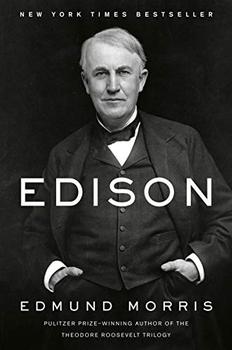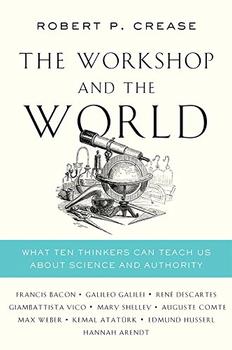Summary | Excerpt | Reviews | Beyond the book | Read-Alikes | Genres & Themes | Author Bio

How Precision Engineers Created the Modern World
by Simon WinchesterThe revered New York Times bestselling author traces the development of technology from the Industrial Age to the Digital Age to explore the single component crucial to advancement - precision - in a superb history that is both an homage and a warning for our future.
The rise of manufacturing could not have happened without an attention to precision. At the dawn of the Industrial Revolution in eighteenth-century England, standards of measurement were established, giving way to the development of machine tools - machines that make machines. Eventually, the application of precision tools and methods resulted in the creation and mass production of items from guns and glass to mirrors, lenses, and cameras - and eventually gave way to further breakthroughs, including gene splicing, microchips, and the Hadron Collider.
Simon Winchester takes us back to origins of the Industrial Age, to England where he introduces the scientific minds that helped usher in modern production: John Wilkinson, Henry Maudslay, Joseph Bramah, Jesse Ramsden, and Joseph Whitworth. It was Thomas Jefferson who later exported their discoveries to the fledgling United States, setting the nation on its course to become a manufacturing titan. Winchester moves forward through time, to today's cutting-edge developments occurring around the world, from America to Western Europe to Asia.
As he introduces the minds and methods that have changed the modern world, Winchester explores fundamental questions. Why is precision important? What are the different tools we use to measure it? Who has invented and perfected it? Has the pursuit of the ultra-precise in so many facets of human life blinded us to other things of equal value, such as an appreciation for the age-old traditions of craftsmanship, art, and high culture? Are we missing something that reflects the world as it is, rather than the world as we think we would wish it to be? And can the precise and the natural co-exist in society?
This is compelling science that never flags; it's a tonic for those who wish for a temporary reprieve from the chaos of daily life. It is a stunning display of those who sought to harness the forces around them to create products and technologies that could have been only fashioned with a keen mind, a steady hand, and the ability to strive to produce the same result over and over again. In some instances, as Winchester observes, such as with computer chips, it appears that precision engineering today has outstripped humankind's ability to produce it, but we'll keep trying. The Perfectionists is precisely an extraordinary read...continued
Full Review
(701 words)
This review is available to non-members for a limited time. For full access,
become a member today.
(Reviewed by Rory L. Aronsky).
 You have a job interview at 9:30. You plan to leave at 8:50. It's really only a 10-minute walk, but the path cuts through pleasant tree-lined neighborhoods and you know you'll take extra time meandering. Right now, it is 8:45 – or around 8:45 anyway. The DVR time atop the TV says 8:46. The microwave and oven times both say 8:47. And your watch, well, your watch, despite a new battery, inexplicably says 8:41. Your phone, by the way, says 8:45, but to paraphrase the classic band Chicago, does anybody really know what time it is anymore?
You have a job interview at 9:30. You plan to leave at 8:50. It's really only a 10-minute walk, but the path cuts through pleasant tree-lined neighborhoods and you know you'll take extra time meandering. Right now, it is 8:45 – or around 8:45 anyway. The DVR time atop the TV says 8:46. The microwave and oven times both say 8:47. And your watch, well, your watch, despite a new battery, inexplicably says 8:41. Your phone, by the way, says 8:45, but to paraphrase the classic band Chicago, does anybody really know what time it is anymore?
Actually, there is one person. At one point in The Perfectionists, Simon Winchester states that he's writing the chapter "to the steady beat of a Seth Thomas thirty-day kitchen clock." When ...
This "beyond the book" feature is available to non-members for a limited time. Join today for full access.

If you liked The Perfectionists, try these:

by Edmund Morris
Published 2020
From Pulitzer Prize-winning author Edmund Morris comes a revelatory new biography of Thomas Alva Edison, the most prolific genius in American history.

by Robert P. Crease
Published 2019
A fascinating look at key thinkers throughout history who have shaped public perception of science and the role of authority.